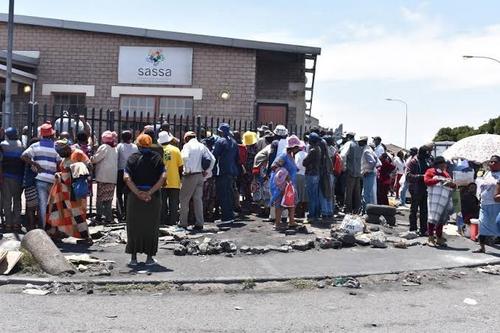The Job Hunt That Never Ends
In South Africa, millions of young people wake up each morning not to go to work, but to search for it. For many, this search has become a full-time job with zero pay. It drains their pockets, tests their resilience, and rarely delivers results.
A new report by the Centre for Social Development in Africa (CSDA) at the University of Johannesburg, supported by Youth Capital, lays bare this hidden cost. According to the study, young job seekers spend R938 a month on average trying to find employment. That money goes toward printing CVs, buying data, taxi fares, and certification fees. For households already stretched thin, these expenses cut into essentials like food and electricity.
The Financial Trap of Job Hunting
“Young people’s ability to find and keep work depends on whether they have the money to look for it,” says Youth Capital. The organisation warns that while financial cost is one barrier, it is only part of a larger system that blocks young people from opportunity.
Many job seekers face impossible choices. “You have to pick between buying electricity or going to an interview,” says 26-year-old Zinhle Mthembu, who has been unemployed for almost three years. “Even when you do go, you come back with nothing, not even a reply.”
This silence from employers, often called ghosting, adds another layer of frustration. After weeks of effort and money spent on interviews, many never receive feedback.
Voices From the Queue
For Lungelo Dlamini from Khayelitsha, the process feels endless. “Every application costs something. Every taxi ride, every printout. Some months, I can’t afford to look for work at all,” he says.
His story echoes across the country. South Africa’s youth unemployment rate remains one of the highest in the world, and for many under 35, the search itself has become a measure of endurance.
A System Built for the Privileged
Because job hunting requires money, access to employment is tilted toward those who already have resources. The result is what researchers describe as a “pay-to-play” labour market, where privilege determines opportunity.
Those without financial backing fall into what economists call discouraged unemployment , people who stop looking for work because the cost of searching is too high. This cycle deepens inequality and leaves millions locked out of the economy.
What Needs to Change
Youth Capital and CSDA both argue that solutions must go beyond financial assistance. They call for integrated interventions that lower the cost and time burden of job seeking such as community job hubs, free internet zones, subsidised transport for interviews, and streamlined recruitment systems.
South Africa’s young job seekers are not lazy or disengaged. They are overworked, underpaid, and ignored. They are spending money they don’t have to chase opportunities that rarely exist. Until that changes, unemployment will remain not just a statistic, but a daily grind that keeps a generation stuck at the starting line.
{Source: IOL}




























